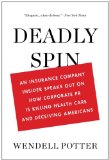Summary | Excerpt | Reading Guide | Reviews | Beyond the book | Read-Alikes | Genres & Themes | Author Bio

What's the Right Thing to Do?
by Michael J. SandelThe seas of American politics have been rocky over the past few years. A tidal wave of hopeful enthusiasm carried Barack Obama to the White House, but in its wake his administration has been beset by seemingly insurmountable obstacles. Is there something wrong with our government, or is politics simply a messy business? As Michael Sandel demonstrates in his enjoyable and thought-provoking Justice, puzzling out the problems of democracy may not require an examination of politics as usual, but rather an investigation of our own notions of right and wrong.
The exciting insight here is that the battles that rage in the halls of congress are intimately linked to those we each fight within our own conscience, and part of the reason it's so hard to come to agreement on the basic questions facing society is that many of them depend on moral dilemmas that are beyond our ability to resolve cleanly. In other words, how can we ensure that our elected representatives do the right thing when it's often hard for any one of us to figure out what's the right thing to do?
In pushing us to track the movements of our own moral compasses, Sandel lays out before us a cavalcade of conundrums, many based on real-life events, and forces us to arrive at our own decisions about the correct course of action. Pondering these hypothetical scenarios is all the more compelling because Sandel offers a working vocabulary of right and wrong based on the competing principles of liberty, equality and fairness. Not only that, he manages to present solid arguments both for and against the positions he considers, placing the burden squarely on the reader to make up his or her own mind.
In the process we are presented with many of the most inflammatory issues that confront a democratic society: the gap between rich and poor, the place of government in society and the marketplace, the sanctity of human life and the rights of individuals to determine their own fate. In a particularly poignant passage, a group of soldiers have set out on an expedition to locate some Afghan militants in remote, mountainous terrain. When they stumble upon a group of goat herders, the soldiers must choose whether to let them go and risk discovery and ambush, or summarily execute human beings guilty of no crime other than being in the wrong place at the wrong time. One of the soldiers, inspired by religious principles, casts the deciding vote to let the herders free. Within hours, the soldiers find themselves in the midst of an ambush whose only survivor would be the one who cast the fateful vote.
What is truly unique about the book is the way Sandel brings his expertise to bear while avoiding a pedantic tone. Successive chapters present the views of different philosophical schools of thought, but rather than ensnaring the reader in a convoluted web of ideas, Sandel continually distills the discussion down to the essential criteria needed to judge right from wrong. You'll be presented with some very sophisticated concepts that, in the language of political philosophy, would go under names like "deontological," "consequentialist" and "contractarian." But in the pages of Justice, these ideas seem easily amenable to common sense. The hard part isn't understanding the terms or following the logic, it's actually allowing yourself a moment to contemplate each dilemma as Sandel lays it out before you. Here's hoping you find those moments as inspiring as I did.
![]() This review was originally published in The BookBrowse Review in October 2009, and has been updated for the
September 2010 edition.
Click here to go to this issue.
This review was originally published in The BookBrowse Review in October 2009, and has been updated for the
September 2010 edition.
Click here to go to this issue.

If you liked Justice, try these:

by Libby Copeland
Published 2021
A deeply reported look at the rise of home genetic testing and the seismic shock it has had on individual lives.

by Wendell Potter
Published 2011
In Deadly Spin, Potter takes readers behind the scenes to show how a huge chunk of our absurd healthcare spending actually bankrolls a propaganda campaign and lobbying effort focused on protecting one thing: profits
Your guide toexceptional books
BookBrowse seeks out and recommends the best in contemporary fiction and nonfiction—books that not only engage and entertain but also deepen our understanding of ourselves and the world around us.